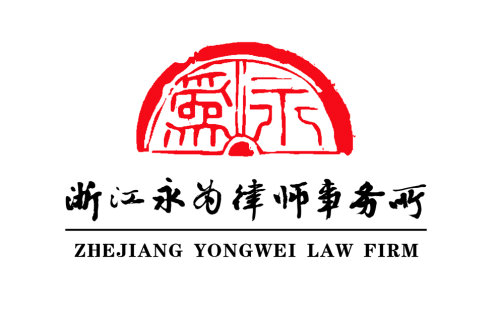Best Commercial Litigation Lawyers in China
Share your needs with us, get contacted by law firms.
Free. Takes 2 min.
Or refine your search by selecting a city:
List of the best lawyers in China
About Commercial Litigation Law in China
Commercial litigation in China involves resolving disputes that arise from business and commercial relationships through the court system. These disputes can relate to contracts, company operations, intellectual property, mergers and acquisitions, joint ventures, debt recovery, and other business transactions. Commercial litigation is governed by a combination of national laws, regulations, and judicial interpretations, with proceedings generally managed by the Chinese people’s courts. Litigating commercial matters in China often requires familiarity with local procedural rules, language, and business customs.
Why You May Need a Lawyer
There are several circumstances where you might require professional legal assistance with commercial litigation in China. Common situations include:
- Contract breaches, such as failure to deliver goods or provide services as agreed
- Disputes related to business partnerships, shareholders, or joint ventures
- Debts owed by or to other companies needing judicial enforcement
- Protection and enforcement of intellectual property rights
- Issues arising from mergers, acquisitions, or restructuring
- Disagreements with suppliers, clients, or distributors
- Fraud, misrepresentation, or misappropriation affecting business interests
- Complex procedural matters, such as evidence collection and submission
Navigating commercial disputes can be challenging due to the language barrier, legal complexity, and differing business practices in China. Engaging a legal expert can help protect your interests, ensure compliance with local laws, and improve the chances of a favorable outcome.
Local Laws Overview
China’s commercial litigation framework is primarily supported by key statutes such as the Civil Code, the Contract Law, and the Civil Procedure Law, among others. The court system is hierarchical, with district (basic) courts, intermediate courts, and higher people’s courts handling cases depending on the size and significance of the dispute. Some special courts, such as IP courts, also handle commercial matters.
Key aspects of Chinese commercial litigation law include:
- Jurisdiction: Determined by the parties’ location, the place of performance, or asset location
- Procedures: Strict timelines for submitting evidence and written submissions to court
- Evidence: Emphasis on notarized or original documents, with legal standards for admissibility
- Pre-litigation Mediation: Often required or encouraged to settle disputes before formal litigation
- Language: Proceedings are generally in Mandarin Chinese, requiring translation for foreign entities
- Remedies: Include damages, specific performance, injunctions, and enforcement of judgments
- Appeal: Parties may appeal first-instance judgments within the statutory period
- Recognition of Foreign Judgments: Limited, and subject to bilateral treaties or reciprocity
Understanding these components is crucial for anyone involved in a commercial dispute in China.
Frequently Asked Questions
What is the typical process for commercial litigation in China?
The process involves filing a complaint, service of process to the defendant, court hearings, submission of evidence, possible mediation efforts, and finally judgment. Enforcement and appeal processes follow if necessary.
Can foreign companies participate in litigation in Chinese courts?
Yes, foreign companies can be parties in Chinese commercial litigation but may need to entrust a qualified Chinese lawyer and provide official translations of their documents.
Is it mandatory to try mediation before formal litigation?
Chinese courts often encourage or require mediation before or during litigation to resolve commercial disputes amicably.
How long does commercial litigation usually take?
The timeframe depends on the complexity of the case but may range from several months to over a year, sometimes longer if appeals or enforcement are required.
What remedies are available in commercial litigation?
Courts may order compensation for damages, performance of contract obligations, injunctions, or other remedies deemed appropriate by law.
Can parties choose arbitration instead of litigation?
Yes, parties can agree to resolve disputes through arbitration rather than litigation. Arbitration awards are generally recognized and enforced by Chinese courts.
What should I do if a Chinese company breaches a contract?
It is important to collect and preserve all related evidence, review contractual dispute resolution clauses, attempt negotiation or mediation if possible, and consult a lawyer regarding possible litigation.
How are judgments enforced in China?
If a party fails to comply voluntarily, the court may enforce a judgment by freezing assets, auctioning property, or other legal measures to ensure compliance.
What role does evidence play in Chinese commercial litigation?
Evidence is critical, and parties bear the burden of proof. Chinese courts favor original documents and notarized evidence. Timely and proper submission is crucial.
Are Chinese court judgments recognized and enforced overseas?
Recognition and enforcement of Chinese judgments abroad depend on treaties or reciprocity between China and the specific country. It is not automatic and may require further legal procedures.
Additional Resources
Several organizations and governmental bodies provide guidance or support regarding commercial litigation in China:
- Supreme People’s Court of China
- Local People’s Courts in respective provinces and municipalities
- Ministry of Justice of the People’s Republic of China
- China International Economic and Trade Arbitration Commission (CIETAC)
- All China Lawyers Association
- National and local bar associations
Additionally, foreign embassies and trade chambers (such as the China-Britain Business Council or American Chamber of Commerce in China) may offer referrals or support to businesses encountering legal disputes.
Next Steps
If you need help with a commercial dispute in China, consider these steps:
- Gather all relevant contracts, correspondence, invoices, and other documentation related to your case
- Determine if your contract specifies litigation or arbitration as the dispute resolution method
- Consult with a qualified Chinese lawyer or law firm experienced in commercial litigation
- Assess the strength of your case and possible legal strategies with your attorney
- Discuss potential costs, timelines, and outcomes before proceeding
- Stay engaged and responsive throughout the legal process to ensure your interests are well protected
Taking prompt and informed action is essential for successful resolution of commercial disputes in China. Expert legal guidance can make a significant difference in the outcome of your case.
Lawzana helps you find the best lawyers and law firms in China through a curated and pre-screened list of qualified legal professionals. Our platform offers rankings and detailed profiles of attorneys and law firms, allowing you to compare based on practice areas, including Commercial Litigation, experience, and client feedback.
Each profile includes a description of the firm's areas of practice, client reviews, team members and partners, year of establishment, spoken languages, office locations, contact information, social media presence, and any published articles or resources. Most firms on our platform speak English and are experienced in both local and international legal matters.
Get a quote from top-rated law firms in China — quickly, securely, and without unnecessary hassle.
Disclaimer:
The information provided on this page is for general informational purposes only and does not constitute legal advice. While we strive to ensure the accuracy and relevance of the content, legal information may change over time, and interpretations of the law can vary. You should always consult with a qualified legal professional for advice specific to your situation.
We disclaim all liability for actions taken or not taken based on the content of this page. If you believe any information is incorrect or outdated, please contact us, and we will review and update it where appropriate.
Browse commercial litigation law firms by city in China
Refine your search by selecting a city.













